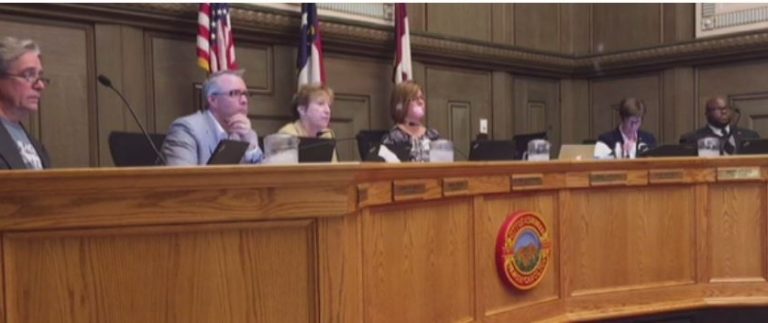More than 40 items on the list
During its Feb. 17 retreat, Asheville City Council revisited the Vision that it established in January 2016 and adopted on February 23, 2016, to ask, “What successes have we had in moving toward the Council’s Vision over the past year?”
The following is a list that Council members identified during their discussion.
- Revised Asheville Police Department’s use of force policy.
- Worked to pass a $74 million bond referendum, which will allow the Council to advance a lot of issues.
- Council enlisted the work of many to advance the bond program, including many presentations from Council.
- Had overwhelming support from community on bond issues (70%+).
- Made progress toward completion of the City’s Comprehensive Plan.
- Working on form-based code for Asheville’s River Arts District.
- 29 neighborhoods participated in the Plan on a Page initiative.
- Moving ahead to hire an Equity Inclusion Manager.
- Funded a disparity study.
- Made new investments in transit.
- Changed some zoning ordinances.
- Created new and improved opportunities for people to weigh in on development — first in subdivisions, then for downtown.
- Created the Energy Innovation Task Force and are moving forward solidly in partnership with Buncombe County, Duke Energy and other stakeholders.
- Retained control of the City’s water system.
- One of bonds addresses affordable housing and will give us a big jump in funding.
- Made first agreement to transition city owned land to affordable housing with a private partner.
- Created many task forces.
- Unanimously created 2+ different task forces to address difficult issues with which we were struggling (difficult that don’t have “right” answers).
- Used the Land Use Incentive Grant as an economic tool to advance affordable housing.
- Created a partnership with NCDOT to improve I-26.
- Improved communication with the community, including a new City website.
- Becoming an open data city. In September 2016 City of Asheville was named Municipal Innovator during the North Carolina Digital Government Summit in Raleigh. The award recognized the City’s updated open-data portal, data.ashevillenc.gov.
- Implemented Ban the Box in hiring practices.
- Started asking about renter status on Boards and Commission application to make sure that we will get more diversity.
- Started construction of RADTIP (River Arts District Transportation Improvement Project).
- Co-funded the African American Heritage vision process to address how to honor contributions of the African American community.
- Despite having a lot on their plates, staff members have continued to deliver services through hard work and dedication, including new priorities and the bond initiative; this has been phenomenal.
- Secured funding for other multi-modal improvements (outside of bonds and other sources), including $4 million for the Craven Street Bridge.
- Just passed a 5-year homelessness plan and are aimed at ending veteran homelessness by the end of this year as its highest priority.
- With partners, aimed to retain the SOCON college basketball tournament.
- Unanimously passed resolutions on social and civil rights issues.
- Committed funding for the reconstruction of Lee Walker Heights.
- Have done a lot with technology, including parking, Asheville App, Open City Hall, SimpliCity.
- Launched new Holiday Downtown lighting display that reflects partnership with N.C. Arboretum.
- Promoted implementation of open streets and walkable Wall Street.
- Implemented new busking regulations with which everyone is pleased.
- Have more businesses in Asheville; there is 3% growth in private investment, predominately in the City’s innovation districts, and especially in the South Slope, Downtown, and River districts where infrastructure is targeted.
- We are managing the substation placement process to minimize impact on neighborhoods and to have adequate power for downtown.
- Engaged in partnerships with Buncombe County and others to work on initiatives such as African American heritage, equity, Family Justice Center, Energy Innovation Task Force, second phase of the composting study, greenways, with potential for affordable housing and transit collaboration, etc.).
- Advanced greenway development, including the culmination of work that has been occurring for a long time.
- Transit Department worked with DOT on analyzing pedestrian safety issues.
- Provided funding to Festival of Neighborhoods.
- Approved improvements to Pritchard Park.
- Working on major works partnership with Tourism Development Authority, including $20 million proposal for the Central Business District and South Slope improvements.
- In Real Life, an afterschool program for middle school-aged students, is now a permanent budget line item.
- Participated in planning for universal access to Pre-K (planning and co-funded study).
